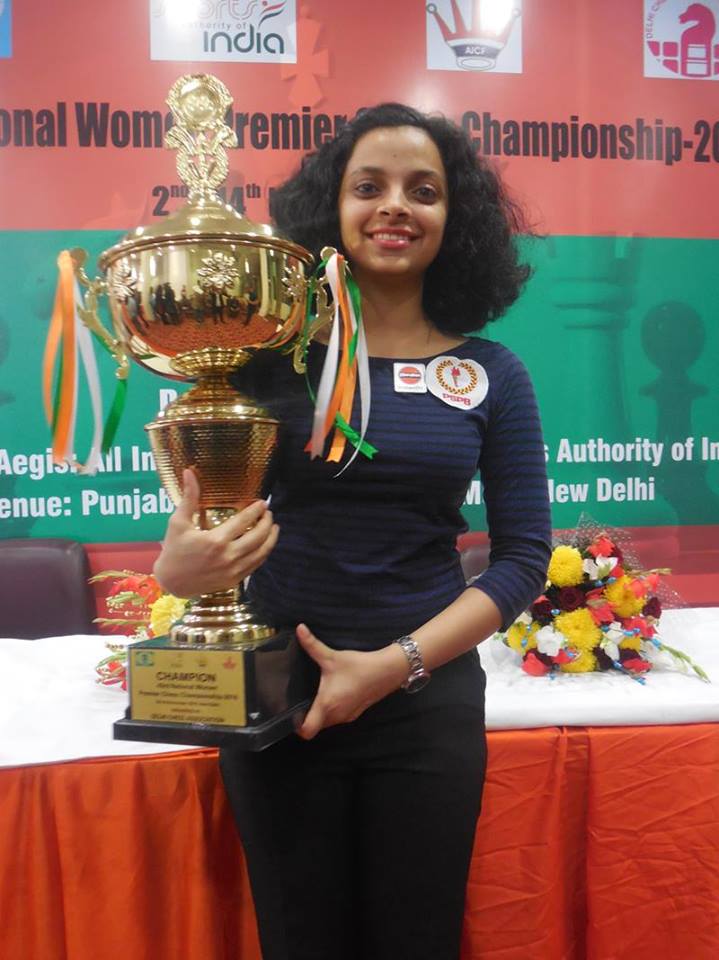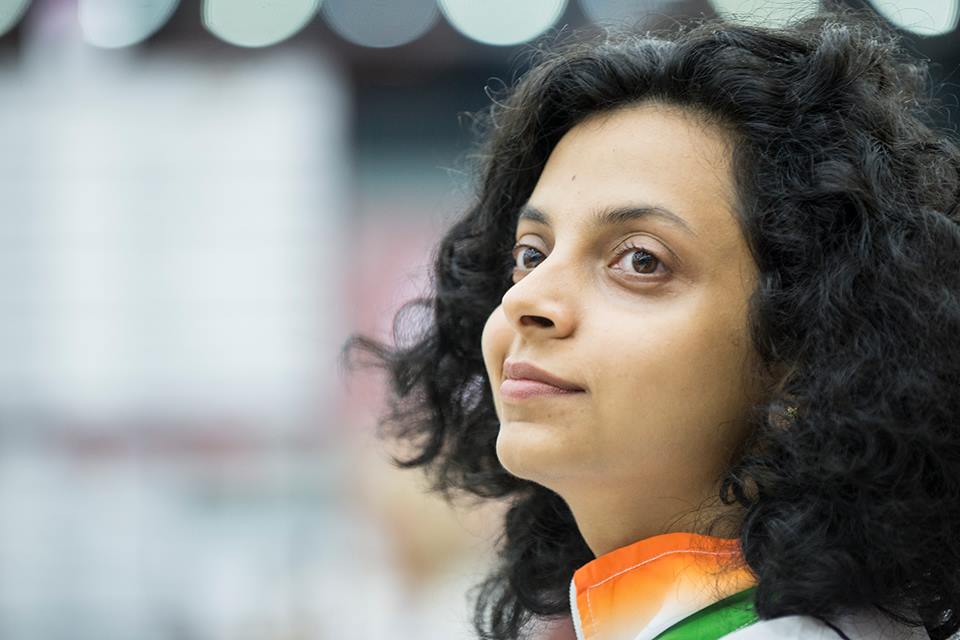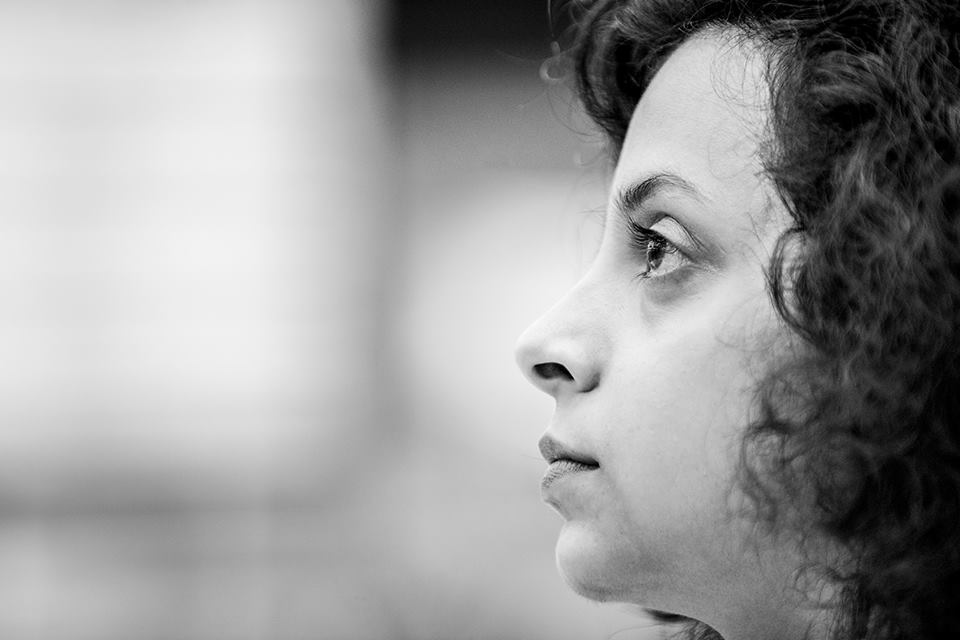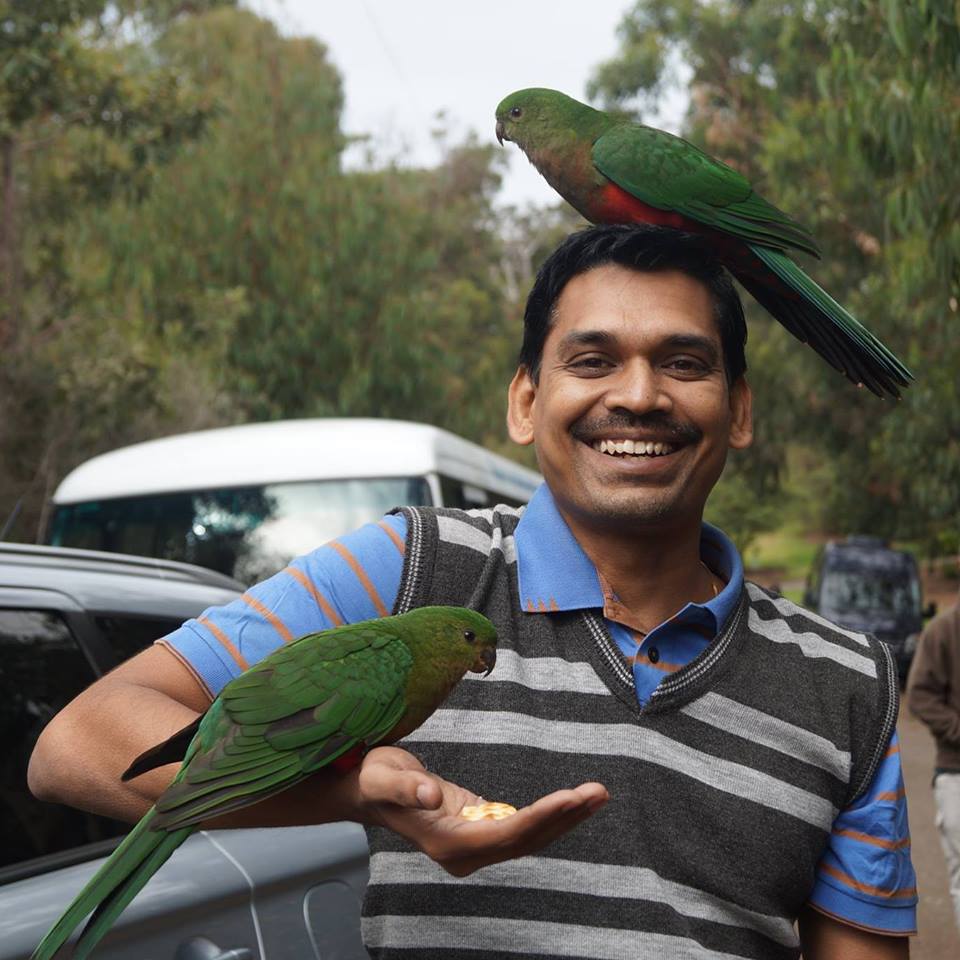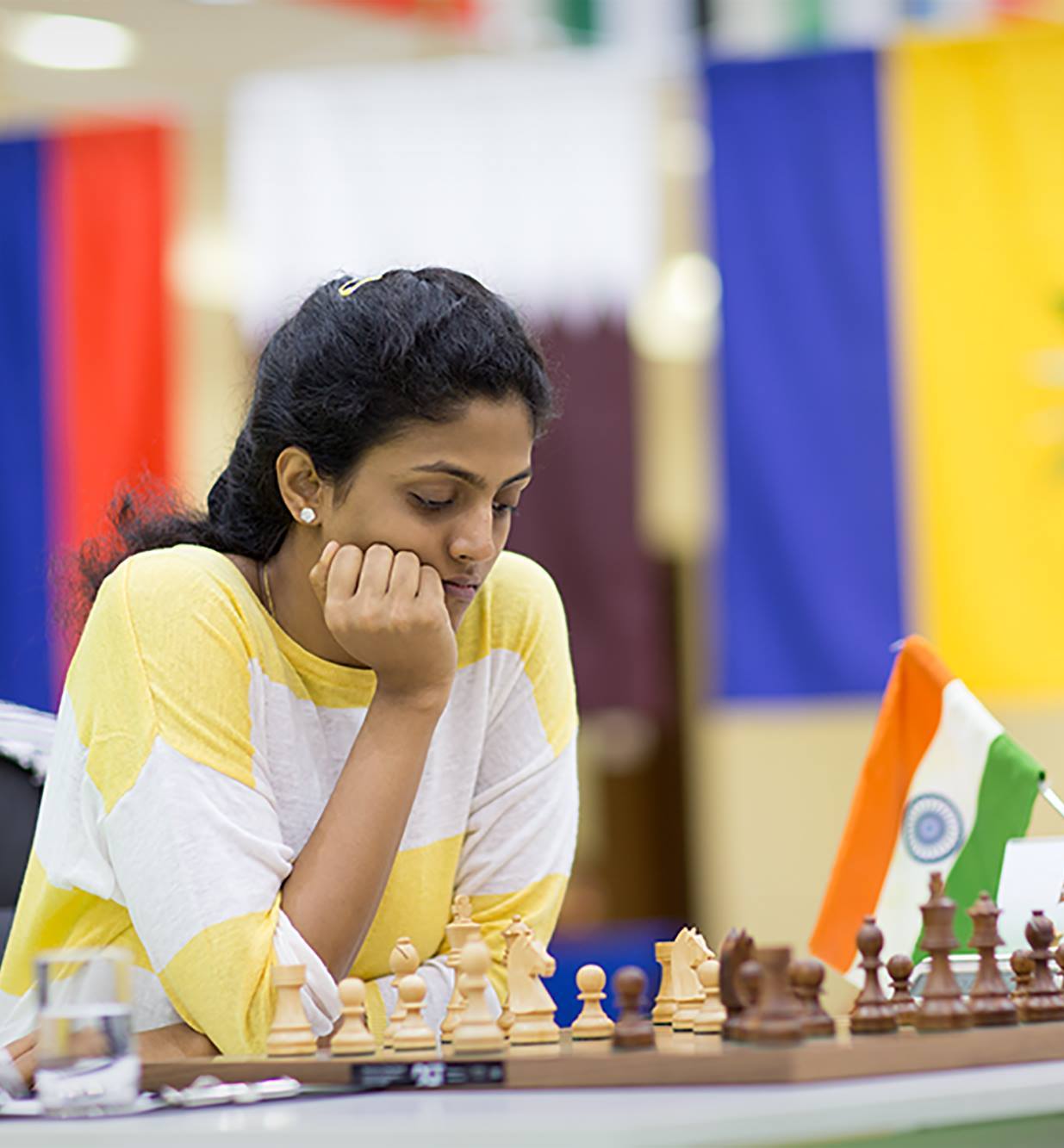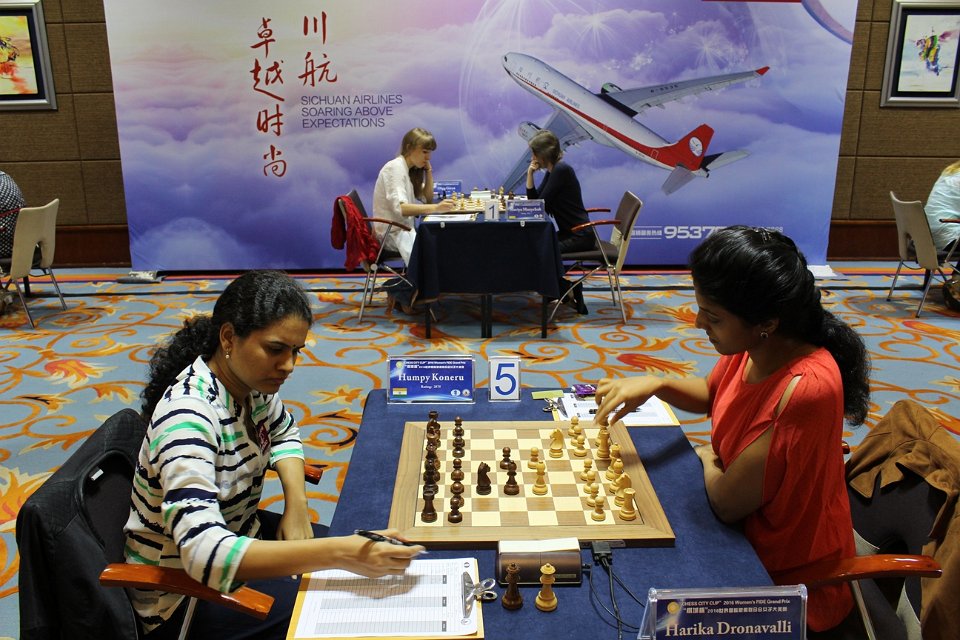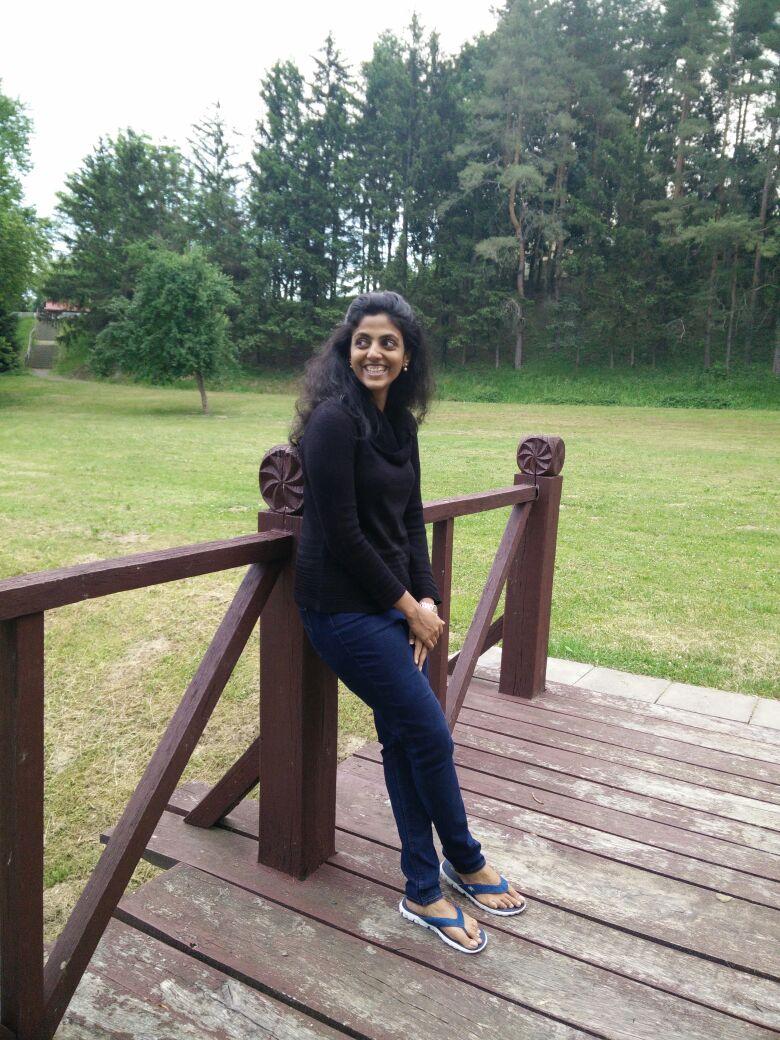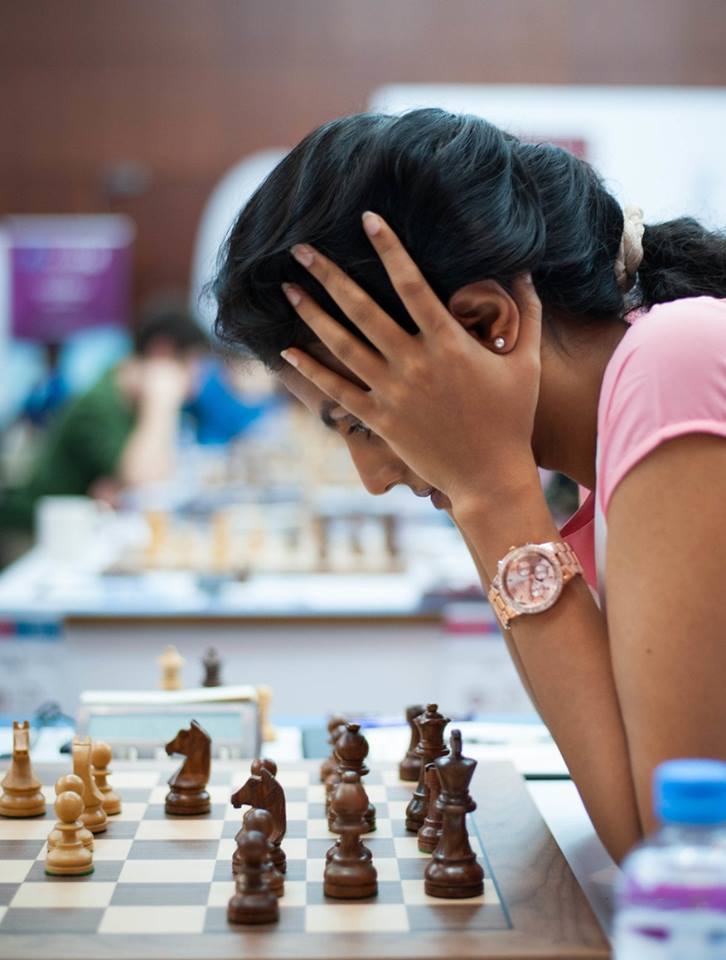We caught up with Srinath Narayanan for an interview, who just recently crossed the 2500 rating requirement at Sharjah Masters to become a Grandmaster.
His story is mixed with glory, success and setbacks. A very talented and persistent player, and a hardworking person, he shares with us his experiences and how he conquered the challenges to become a very strong player he is today. His journey wasn’t easy, but he sets an example that with the dedicated effort and love for the game, it is possible to attain even unattainable goals.

Rucha Pujari: Congratulations Srinath on becoming a Grandmaster! You have had five GM norms to your credit and many times came close with the rating. What went right at Sharjah Masters that helped you cross the 2500 barrier?
Srinath Narayanan: Thank you very much Rucha 🙂
I think there were a few things that I decided to do differently towards the end of 2016. Firstly, I felt that I needed a different coach, a new one who can give me a new perspective and who didn’t have prejudice about my chess. I had been interacting with GM Andrey Deviatkin for a couple of years prior to 2016, and we had talked about my game at times. I asked him to help me from around September 2016. I immediately increased around 15 points and made my 4th GM norm in the very next tournament. It took me a while to really agree with the changes he suggested, but after a disastrous IIFL tournament at the end of the year, I thought “why not? It can hardly get worse” Things became easier after that and this was one of the significant changes.
Secondly, there was a conscious decision to play in stronger tournaments. In the whole of 2015 and 2016 put together, I had faced only 11 opponents above 2600. Add 2014 and it’s just 17. However, in 2017, I’ve already faced 13 opponents above 2600 and quite a few between 2550-2600 as well. So I think it was a combination of these two factors, and I think the change of choice of tournaments in particular made a big difference.

The living legend, Vishy Anand tweeted on your success. How good did it feel?
Congrats srinath narayan. Welcome to the GM fold. Still remember you visiting us many years ago & I tried suggesting books! Impressive play
— Viswanathan Anand (@vishy64theking) March 29, 2017
It was one of the best feeling! I don’t think it’ll be an exaggeration if I said that it felt better than getting the GM title itself 🙂 It also felt great that he was still following my results.
You must have had many hurdles to cross in your journey of becoming a Grandmaster. Can you describe any one difficult problem you have had to deal with, and how did you handle it?
Absolutely, there have been several hurdles that I’ve had to cross. One which comes to my mind is that for a long time I had difficulty when I came close to a goal or a milestone. For example, I’ve lost several times when I needed to make a draw to get a norm or in similar circumstances.
I overcame this by training myself to stay in the present and not dwell too much on these external goals even when I wasn’t playing. This is of course easier said than done and it took me a long time to train this.
How was your journey from a chess prodigy to a Grandmaster? Also we are interested to know how your game developed in the process.
The journey was quite difficult, like climbing a steep mountain. My career was quite smooth till around the age of 14. I had become an IM by that time and I was seeded 2nd in the World Under 14 in which I finished 7th. So I was definitely quite up there.
Around 2008, things changed quite drastically when my sponsorship was discontinued by Sun Group, a multinational company based in Russia, due to recession. As a result I didn’t have much coaching during 2009-11 and also the foreign tournaments stopped. This changed my career quite a bit, as I dropped about 100 points. This also affected my self confidence. I started working with GM Abhijit Kunte from 2011 and it helped immensely. He helped me regain my confidence and self belief, and I started to climb up again. Between 2013-16 I was again stuck in a valley, but I think this was because of being unable to play strong tournaments due to limited funds. I managed to change this approach in 2016 and now I intend to be more judicious in this regard.
With regard to my game, I think I started out as a tactical player who could play quite fast. This was due to solving a lot of tactics and playing a huge number of weekend rapid tournaments in the early stages of my career. As my career progressed, I was influenced by different coaches at different parts of my career. Like for example, after working for a few months with GM RB Ramesh, I became vastly improved in openings. At different stages, what I studied defined what my strength and weaknesses were. When I improved in one aspect, the other would be relatively weak, which would become apparent over a period of time. Then I would work on the weaker to part to bring about a balance.

Can you share with us some of the turning points of your career? In retrospect, were there any moments that made you feel that this game, this field is what you want to pursue?
My first turning point was probably when I won the State Under 7 in 2000. This was what gave my parents the confidence to continue to support me in Chess in the first place. A couple of years later, I became the Youngest FIDE rated player in India. At that time it was hailed as an achievement because the number of rated players in India were limited and the minimum threshold for gaining rating was 2000. Then of course the biggest achievement was winning the World Under 12 Chess Championship in Belfort.
However, honestly I don’t think it was such external things that made me choose chess. My love and passion for chess was there from the beginning, and it just felt natural that I would keep continuing playing the game. There may have been negative thoughts of a fleeting nature, but I never seriously considered doing anything else.
If you have to pick one, what is one key event that changed your professional life in a positive or negative way?
Well, in terms of positivity, I think it was winning the World Under 12 in 2005. It gave me a lot of funding, support, recognition, and made it much easier to become an IM.
In terms of negative event, it was the loss of sponsorship in 2008 due to recession.
Recently you made a witty tweet regarding cheating in Chess. On those lines, do you think the future of Chess is in danger?
Some of these low rated players can be very dangerous. You never know what’s under their sleeve 😛
— Narayanan Srinath (@nsrinath69) April 7, 2017
Yes, absolutely. It’s probably an exaggeration to say that the future of chess is in danger, however this is a very serious menace. India has taken serious measures and is probably in the forefront in tackling this problem. For example, I see that in Indian tournaments, the mobile phone rule is strictly enforced in all the tournaments I’ve played recently and the arbiters have been vigilant.
However, I feel that there may have been some instances where people have managed to evade the net. It’s easier when a person cheats obviously and regularly, as the officials can keep vigil and nab the suspect at some moment. But, there can be more intelligent ways to cheat, like for example, cheating in only specific games, or specific moments, and these are much harder to detect. And even if a person is suspected, proving it is a whole different story.
Such instances can have a major impact on the victim. When you get outplayed like that, it can possibly shatter a person’s self confidence and cause a lasting impact, even if temporary. I think this is something that must be taken quite seriously and fought with all resources.
One effective way to make this difficult would be to have a policy where the games at the lower level (below 2700) are broadcasted with a 15/30 minute delay. This’ll eradicate one way of cheating – receiving communication via a micro device. Without being able to receive communication, a prospective cheater has to rely on methods that has greater risk of being caught. I feel that this is a very serious and necessary precaution.
What one or two things do you have in your training that are keys to your success? How would you a guide an upcoming player to improve at Chess?
I feel that it is very useful to have a good partner to work with. I find that this makes a major difference, compared to working on one’s own all the time. While it’s an extremely useful skill to be able to work for a long time on your own, usually collaborating with a good partner makes one’s work at least twice faster and more productive.
As far as what areas to work on goes, I think this is something very subjective. Once a player has decent basics and starts playing at a standard level, they usually develop certain tendencies that becomes a constraint to progress. Therefore, I think it’s very important and essential to constantly analyze one’s own games and draw conclusions. The pattern found in the list of mistakes can give a good idea of the strengths and weakness.This gives a good indication on the areas to work on. ‘Pump up your rating’ by Axel Smith explains this process well. The late Russian IM and legendary coach Mark Dvoretzky has also written about this.
What is your next goal? How are you working in that direction?
For now, my goal is to keep progressing the way I’ve this year so far. I’ll be looking to play more of such strong tournaments, and keep working on my weaknesses and try to improve my strengths. In general, I much rather prefer performance goals over result goals.

What is success, according to you?
I’ve never thought about this really, but I suppose success is a feeling of accomplishment, wherein I manage to achieve what I want.
I haven’t thought much about success, because a few years ago I came across the following lines which made a deep impact in my mind:- “”Don’t aim at success—the more you aim at it and make it a target, the more you are going to miss it. For success, like happiness, cannot be pursued; it must ensue, and it only does so as the unintended side-effect of one’s dedication to a cause greater than oneself or as the by-product of one’s surrender to a person other than oneself. Happiness must happen, and the same holds for success: you have to let it happen by not caring about it.” From Man’s search for meaning by Viktor.E.Frankl and this is the philosophy I choose to adopt. A similar philosophy was also suggested in the movie 3 idiots and it is something I’ve written in detail in the paradox of work.
Blitzkrieg!
Any one country you have enjoyed playing in?
Russia
A book you like and you would suggest reading, to a friend.
Flow
What is the one thing that annoys you the most 😛
Pessimism
What was the best advice you were ever given?
Enjoy the present.
